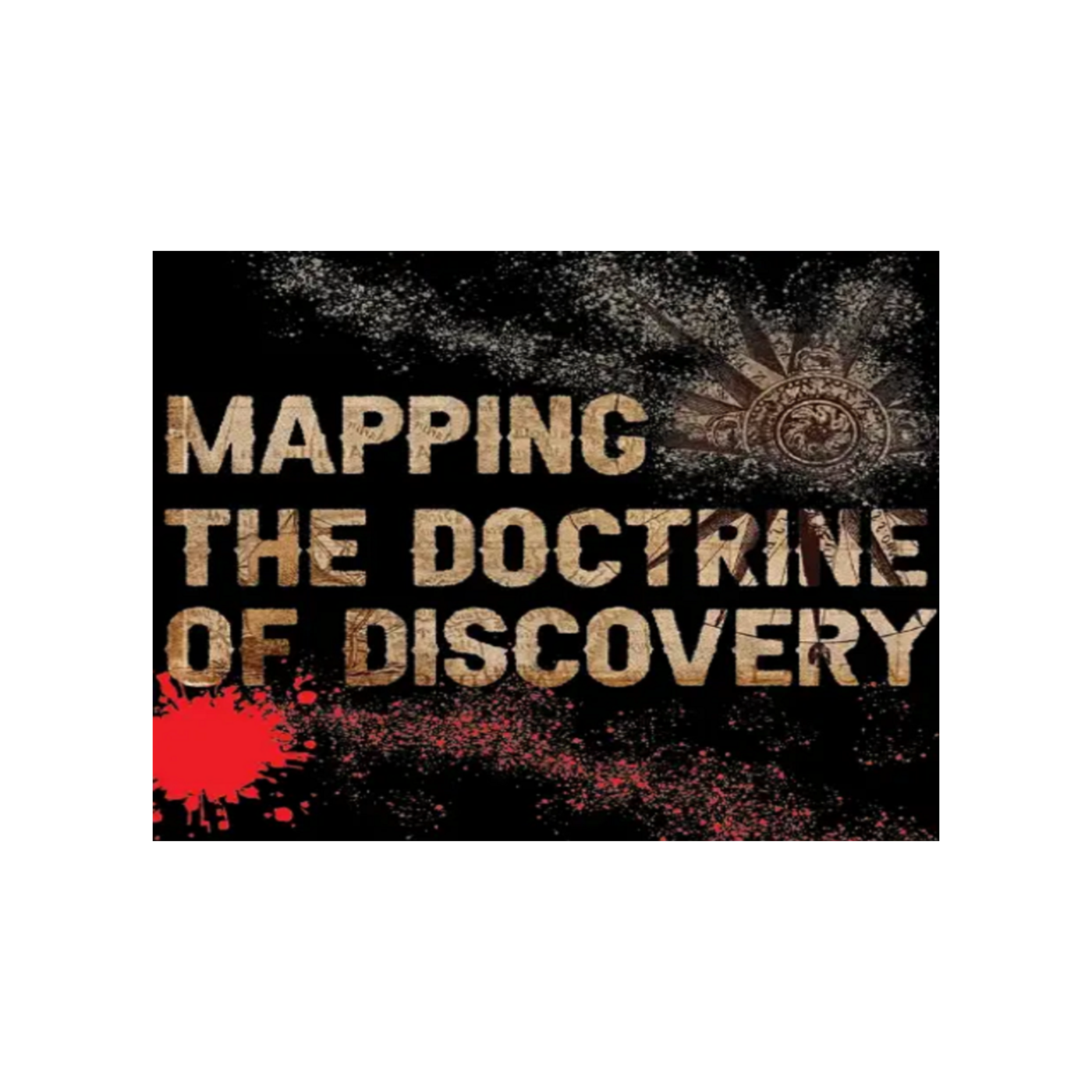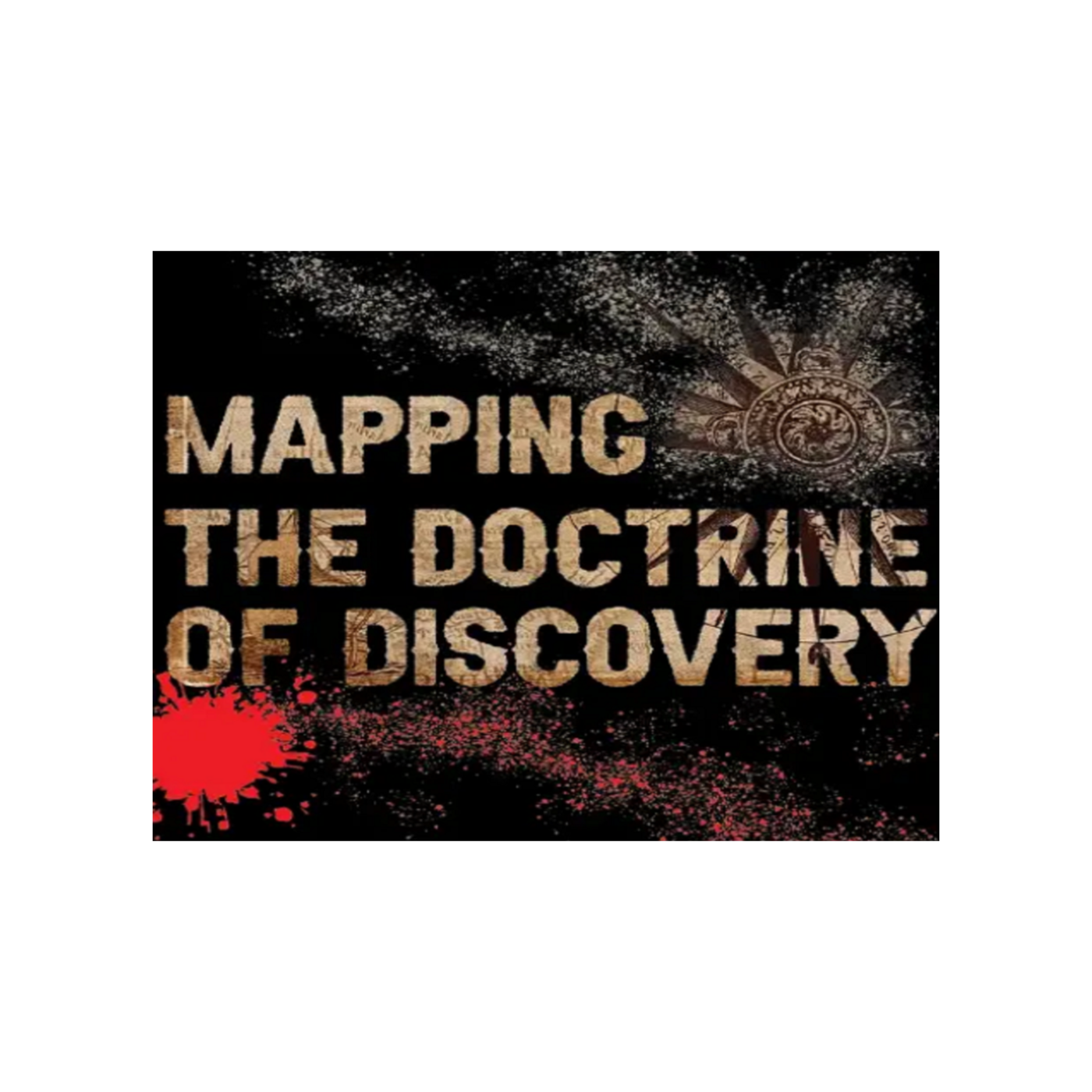Indigenous Wisdom for Planetary Healing with Yuria Celidwen

Indigenous Wisdom for Planetary Healing with Yuria Celidwen
Podcast Description
In Season 5, Episode 7 of the Mapping the Doctrine of Discovery podcast, Dr. Yuria Celidwen discusses the importance of Indigenous wisdom for planetary healing. She introduces herself as a “truth bearer” from the Maya Bats’ik’op tradition and explains how her cultural background and academic work seek to bridge Indigenous sciences with Western systems. Celidwen critiques dominant Western approaches to knowledge, particularly in contemplative and mindfulness studies, which often extract and commodify non-Western spiritual practices while stripping them of their communal and ethical foundations.Celidwen outlines how Indigenous practices are deeply tied to land, community, and a sense of sacred interconnection among all beings—what she calls the “more than human world.” She highlights the danger of secularizing or individualizing spiritual practices, such as mindfulness, which originated in communal, relational contexts. These Western adaptations often ignore the historical trauma and ongoing marginalization of Indigenous peoples, reducing rich traditions to wellness tools for privileged individuals.The conversation critiques how religious and spiritual movements in the West, particularly in the “Burned-Over District” of upstate New York, often grew alongside Indigenous dispossession. Celidwen and the hosts emphasize how the Doctrine of Discovery and its theological roots helped justify land theft and cultural erasure. They argue that recovering and respecting Indigenous histories and worldviews is necessary for healing—not just for Indigenous peoples, but for all who live on the planet.Throughout the episode, Celidwen speaks to the role of metaphor, poetry, and embodied experience in Indigenous knowledge systems. She contrasts this with Western science’s tendency to isolate and objectify. She emphasizes that Indigenous wisdom is not less rigorous, but rather holistic—engaging emotion, ritual, and responsibility to community. True healing, she argues, involves active participation in collective life, not retreat into personal well-being.Finally, the conversation closes with a call to support Indigenous communities and their traditions, not as relics of the past, but as living systems with the power to guide us toward a more balanced and compassionate future. Celidwen urges listeners to embrace the responsibilities of kinship and co-creation, grounded in reverence for life and the Earth.
Podcast Insights
Content Themes
This episode focuses on the importance of Indigenous wisdom for planetary healing, critiquing Western approaches to knowledge, particularly in mindfulness studies, and how they often commodify Indigenous practices while ignoring their communal roots. Topics include the dangers of secularizing spiritual practices, historical trauma faced by Indigenous peoples, and the role of metaphor and poetry in Indigenous knowledge systems.

In Season 5, Episode 7 of the Mapping the Doctrine of Discovery podcast, Dr. Yuria Celidwen discusses the importance of Indigenous wisdom for planetary healing. She introduces herself as a “truth bearer” from the Maya Bats’ik’op tradition and explains how her cultural background and academic work seek to bridge Indigenous sciences with Western systems. Celidwen critiques dominant Western approaches to knowledge, particularly in contemplative and mindfulness studies, which often extract and commodify non-Western spiritual practices while stripping them of their communal and ethical foundations.
Celidwen outlines how Indigenous practices are deeply tied to land, community, and a sense of sacred interconnection among all beings—what she calls the “more than human world.” She highlights the danger of secularizing or individualizing spiritual practices, such as mindfulness, which originated in communal, relational contexts. These Western adaptations often ignore the historical trauma and ongoing marginalization of Indigenous peoples, reducing rich traditions to wellness tools for privileged individuals.
The conversation critiques how religious and spiritual movements in the West, particularly in the “Burned-Over District” of upstate New York, often grew alongside Indigenous dispossession. Celidwen and the hosts emphasize how the Doctrine of Discovery and its theological roots helped justify land theft and cultural erasure. They argue that recovering and respecting Indigenous histories and worldviews is necessary for healing—not just for Indigenous peoples, but for all who live on the planet.
Throughout the episode, Celidwen speaks to the role of metaphor, poetry, and embodied experience in Indigenous knowledge systems. She contrasts this with Western science’s tendency to isolate and objectify. She emphasizes that Indigenous wisdom is not less rigorous, but rather holistic—engaging emotion, ritual, and responsibility to community. True healing, she argues, involves active participation in collective life, not retreat into personal well-being.
Finally, the conversation closes with a call to support Indigenous communities and their traditions, not as relics of the past, but as living systems with the power to guide us toward a more balanced and compassionate future. Celidwen urges listeners to embrace the responsibilities of kinship and co-creation, grounded in reverence for life and the Earth.
In Season 5, Episode 7 of the Mapping the Doctrine of Discovery podcast, Dr. Yuria Celidwen discusses the importance of Indigenous wisdom for planetary healing. She introduces herself as a “truth bearer” from the Maya Bats’ik’op tradition and explains how her cultural background and academic work seek to bridge Indigenous sciences with Western systems. Celidwen critiques dominant Western approaches to knowledge, particularly in contemplative and mindfulness studies, which often extract and commodify non-Western spiritual practices while stripping them of their communal and ethical foundations.
Celidwen outlines how Indigenous practices are deeply tied to land, community, and a sense of sacred interconnection among all beings—what she calls the “more than human world.” She highlights the danger of secularizing or individualizing spiritual practices, such as mindfulness, which originated in communal, relational contexts. These Western adaptations often ignore the historical trauma and ongoing marginalization of Indigenous peoples, reducing rich traditions to wellness tools for privileged individuals.
The conversation critiques how religious and spiritual movements in the West, particularly in the “Burned-Over District” of upstate New York, often grew alongside Indigenous dispossession. Celidwen and the hosts emphasize how the Doctrine of Discovery and its theological roots helped justify land theft and cultural erasure. They argue that recovering and respecting Indigenous histories and worldviews is necessary for healing—not just for Indigenous peoples, but for all who live on the planet.
Throughout the episode, Celidwen speaks to the role of metaphor, poetry, and embodied experience in Indigenous knowledge systems. She contrasts this with Western science’s tendency to isolate and objectify. She emphasizes that Indigenous wisdom is not less rigorous, but rather holistic—engaging emotion, ritual, and responsibility to community. True healing, she argues, involves active participation in collective life, not retreat into personal well-being.
Finally, the conversation closes with a call to support Indigenous communities and their traditions, not as relics of the past, but as living systems with the power to guide us toward a more balanced and compassionate future. Celidwen urges listeners to embrace the responsibilities of kinship and co-creation, grounded in reverence for life and the Earth.

Disclaimer
This podcast’s information is provided for general reference and was obtained from publicly accessible sources. The Podcast Collaborative neither produces nor verifies the content, accuracy, or suitability of this podcast. Views and opinions belong solely to the podcast creators and guests.
For a complete disclaimer, please see our Full Disclaimer on the archive page. The Podcast Collaborative bears no responsibility for the podcast’s themes, language, or overall content. Listener discretion is advised. Read our Terms of Use and Privacy Policy for more details.